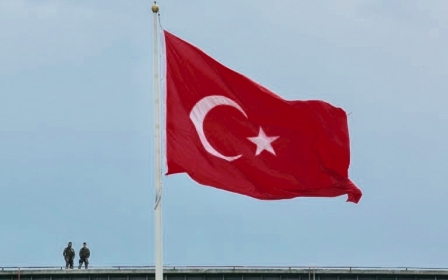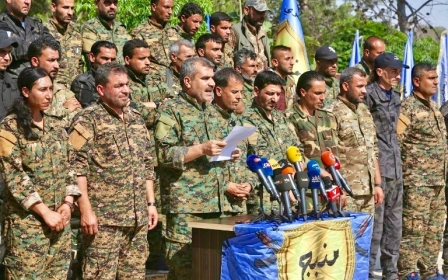US raises concern over Turkish air strikes on Kurdish fighters in Syria
The United States has voiced concern over Turkish air strikes on Kurdish fighters in Syria, which led the Kurdish People's Protection Units (YPG), a US-allied force, to temporarily suspend its fight against the Islamic State (IS) group.
"Unilateral military strikes into northwest Syria by any party, particularly as American personnel may be present or in the vicinity, are of great concern to us," US State Department Spokesperson Robert Palladino told reporters on Wednesday.
"Coordination and consultation between the United States and Turkey on issues of security concern is a better approach," he said.
The YPG dominates the Syrian Democratic Forces (SDF), joint Arab-Kurdish units fighting in Syria with US backing. They have been a key US ally in the fight against IS.
Turkey, however, considers the YPG to be an extension of the Kurdistan Workers' Party (PKK), which has waged a deadly insurgency in Turkey since 1984 and is designated as a terrorist group by Turkey, the US and the European Union.
Earlier on Wednesday, Turkey killed four Kurdish fighters in the shelling of YPG positions in Syria near the border at Kobane.
Turkish President Recep Tayyip Erdogan a day earlier vowed to "destroy" the YPG and said Ankara was determined to push Kurdish fighters back from the border area.
And on Sunday, the Turkish military fired artillery shells at YPG positions in the village of Zor Maghar, east of the Euphrates River.
“The shelling proves how serious and determined we are," a Turkish intelligence source told Middle East Eye on condition of anonymity.
On Wednesday, Palladino said the US has been in touch both with Turkey and the Syrian Democratic Forces "to emphasize the need to de-escalate the situation".
He stressed that Turkey remained a partner and said the US was "fully committed to our ally's border security".
Middle East Eye propose une couverture et une analyse indépendantes et incomparables du Moyen-Orient, de l’Afrique du Nord et d’autres régions du monde. Pour en savoir plus sur la reprise de ce contenu et les frais qui s’appliquent, veuillez remplir ce formulaire [en anglais]. Pour en savoir plus sur MEE, cliquez ici [en anglais].




